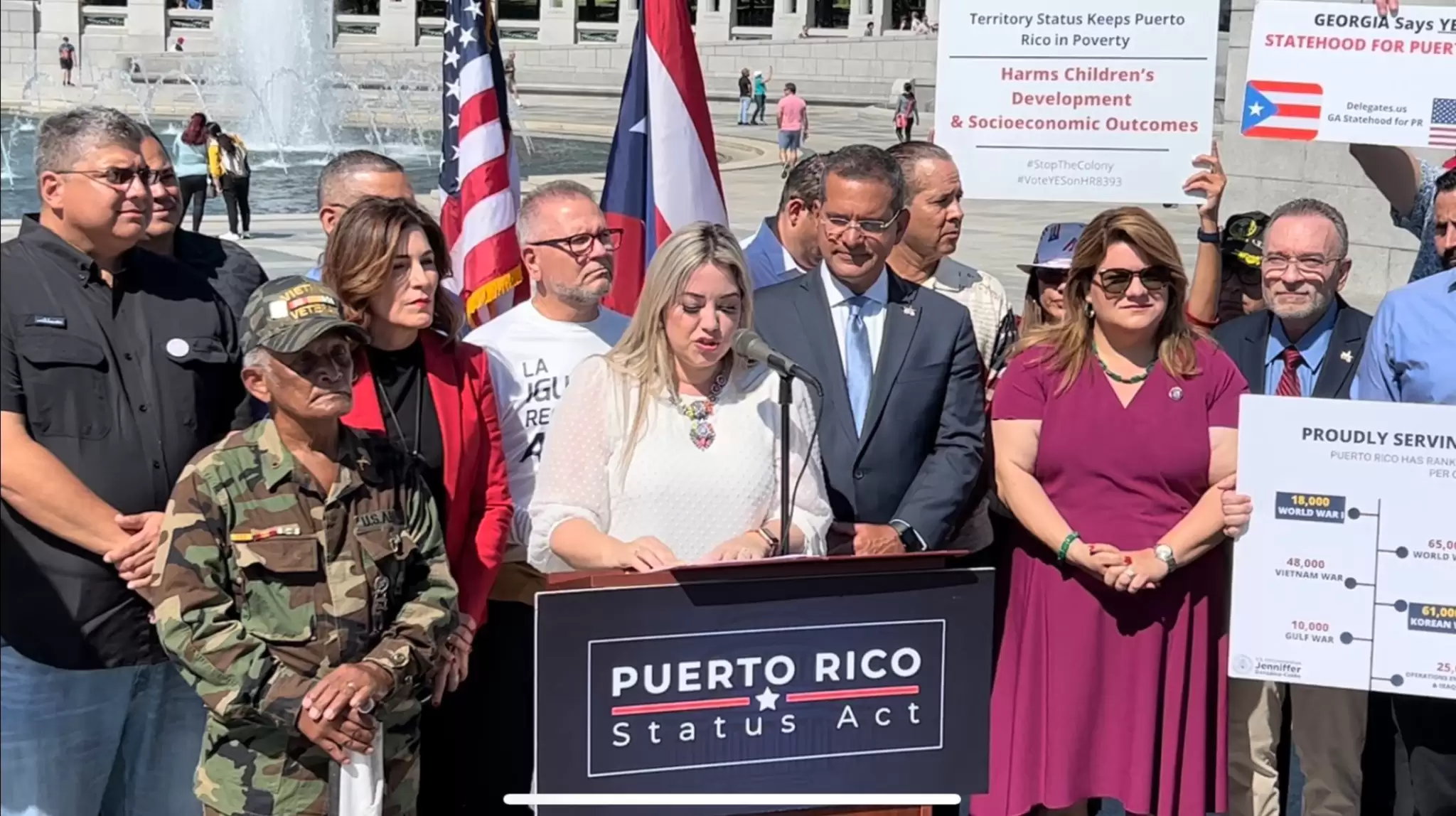In 1898, in the context of the Spanish-American War, Puerto Rico went from being a colony of Spain to becoming one of the 16 territories of the United States. Of these, only five are inhabited: Guam, Northern Mariana Islands, U.S. Virgin Islands, American Samoa, and Puerto Rico, the only one with the constitutionally required political structure to attempt to transcend its territorial status.
Last December 15, the U.S. House of Representatives approved the Puerto Rico Status Act H.R. 8393 with 233 votes in favor (217 Democrats and 16 Republicans) and 191 against (all Republicans). This is a bill introduced by Puerto Rican and Democratic congresspersons Nydia Velázquez, from New York, and Darren Soto, from Florida, and also by the Commissioner of the Government of Puerto Rico in Washington, Jennifer González Colón. The latter is allied with the New Progressive Party, which governs Puerto Rico, and the U.S. Republican Party. The law is also endorsed by 59 other congressmen.
This instrument orders the holding of a plebiscite in Puerto Rico for its 3.2 million inhabitants (U.S. citizens), which was endorsed for the first time in history, explicitly and directly by Congress (previously there had been consistent consultations but without such endorsement), to resolve and settle its definitive status in its relationship with the United States.
The consultation options exclude the current territorial-colonial status, called the Commonwealth of Puerto Rico, which was established in 1952 and has been declared fiscally bankrupt since 2017. In macroeconomic terms, Puerto Rico, starting from the commonwealth regime, has a per capita income of about $32,000 per year, which is less than half the average of the 50 states (these also have stronger and more competitive private sectors), but with living costs and tax burdens, which, often, are comparable or higher than those states.
Territories: models of economic and citizenship inferiority
American constitutionalism establishes two main categories of political organization: the states, in which their citizens enjoy full rights, socioeconomic grants and privileges, and the territories, in which there is no such benefit.
The U.S. Constitution operating since 1789 was very advanced for the time, but existing in the midst of times of geographical expansions and slavery, provides in Article IV, of the third section (territorial clause) that “the Congress shall have Power to dispose of and make all needful Rules and Regulations respecting the Territory or other Property belonging to the United States.”
That stipulation is plenipotentiary in nature and lays the groundwork for the Constitution itself to discriminate selectively against American citizens living in the territories, who, for example, cannot vote in the U.S. elections, but who are conscripted, even compulsorily if necessary, which has happened in the past to serve in the Armed Forces. Paradoxically, citizens of the territories acquire full rights if they relocate to the 50 states.
The Bill
H.R. 8393 is the first step for Puerto Rico to overcome its territorial-colonial status. It provides that the plebiscite consultation will include three non-territorial options, taking into account that any of them is more worthy and effective than the current status: A) Independence or total separation. B) Free association, a variant of independence, which would maintain American citizenship for 25 years for those born during that period, and metropolitan transfers of economic resources. C) Statehood, which means full integration, with permanent U.S. citizenship and greater incorporation of the Puerto Rican economy into the U.S. economy than at present.
Puerto Rico currently receives approximately $22 billion annually in government transfers, a substantial amount but much less than the approximately $40 billion received by states with a population comparable to Puerto Rico, such as Connecticut or Arkansas. Statehood has won the three most recent plebiscites in 2012, 2017 and 2020.
Derivations
Even though H.R. 8393 was not debated in the Senate, and technically was not immediately effective at the end of the congressional term in December 2022, its proponents, who have the backing of the Biden administration, will push it again. Although the political process will be difficult and may induce adjustments, it has a chance of success in a House now led by Republicans but by a smaller majority than the previous margin of approval. If on this occasion, it reaches the Senate in plenty of time, that body is under Democratic control.
At this time, the strongest support for the bill comes from the Democratic Party, among other reasons because within the Republican Party, there are voices arguing that Puerto Rico would be a Democratic state. This is an apocryphal idea since throughout history, Puerto Rico has elected candidates from both parties. Moreover, electoral behavior continuously varies.
Beyond this false theory, the bipartisan debate in the United States on the issues of immigration and multiculturalism has repercussions in Puerto Rico. For example, at the domestic level, among the opponents of statehood, the Puerto Rican independence movement stands out, a minority but influential one, whose nationalist ideological profile equates it, among other political currents, to Catalan separatism in terms of its allegations of cultural assimilation of an “oppressed nation by a foreign, invading centralist and imperial force.”
These arguments, with resonance in the xenophobic Trumpist ultra-right and its peripheries, are historically, anthropologically, and legally erroneous. The United States is a very multicultural country with more than 60 million Spanish-speaking people, and this number is growing. In that country, the Constitution, as recognized in H.R. 8393, does not establish a single official language, leaving that power to each state. Therefore, Puerto Rico would maintain Spanish and English.
Whatever happens in the near future in the situations and power games of Congress, the approval of H.R. 8393 is a historic event and a new and positive trigger for Puerto Rican politics.
*Translated from Spanish by Janaína Ruviaro da Silva













